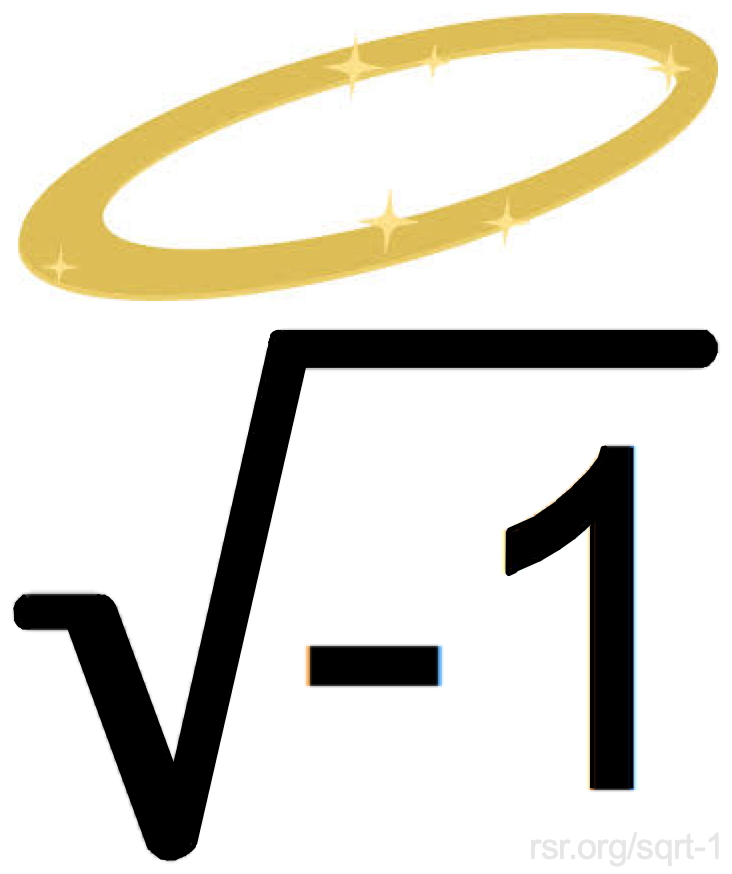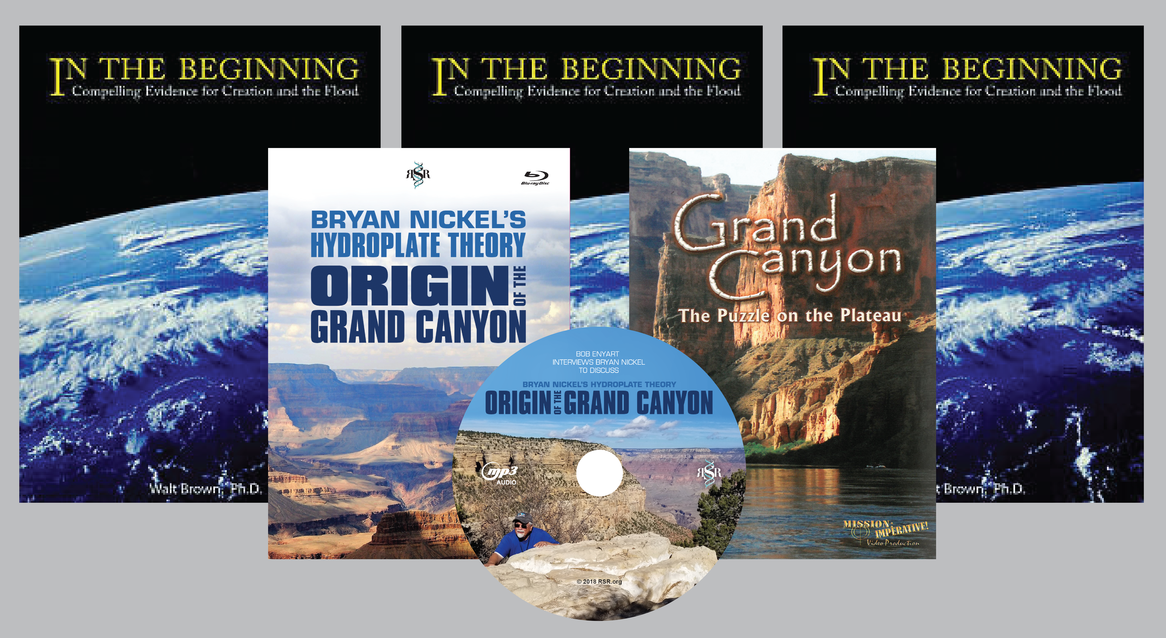 * Information and Darwinism: Real Science Radio concludes our translation of Fred Williams' visual presentation into audio for this radio broadcast. (Covering the science topics that we do on radio without benefit of visuals is no mean feat.) Four Colorado creation groups saw Information Theory and the Demise of Darwinism. Bob Enyart and Fred talk about information to get at what one of the most accomplished physicists in history meant when he said, "Everything is information." Why do so many materialists desperately claim that information is physical? You may want to first listen to Part 1. A bonus in today's program is the guys' effort to explain the many decades of confusion and disagreement over something called "Shannon Information".
* Information and Darwinism: Real Science Radio concludes our translation of Fred Williams' visual presentation into audio for this radio broadcast. (Covering the science topics that we do on radio without benefit of visuals is no mean feat.) Four Colorado creation groups saw Information Theory and the Demise of Darwinism. Bob Enyart and Fred talk about information to get at what one of the most accomplished physicists in history meant when he said, "Everything is information." Why do so many materialists desperately claim that information is physical? You may want to first listen to Part 1. A bonus in today's program is the guys' effort to explain the many decades of confusion and disagreement over something called "Shannon Information".
* Materialists vs. Everything: Just as information is immaterial, it turns out that so much of what is most substantive is not material. Copied from rsr.org/atheism#not-physical...
- Numbers are not physical.
- Math is not physical.
- Information is not physical.
- Grammar is not physical.
- Logic is not physical.
- Reason is not physical.
- Concepts are not physical.
- Ideas are not physical.
- Morality is not physical.
- Truth is not physical.
- Souls are not physical.
- Spirits are not physical.
- Codes are not physical. - The square root of negative one. (Imaginary numbers are non-physical concepts, yet they are crucial for understanding aspects of the physical world, which itself is evidence against a materialist origin of the universe and effectively reveals the intellect of the Creator. See this at rsr.org/math#sq-rt-neg-one.)
- The square root of negative one. (Imaginary numbers are non-physical concepts, yet they are crucial for understanding aspects of the physical world, which itself is evidence against a materialist origin of the universe and effectively reveals the intellect of the Creator. See this at rsr.org/math#sq-rt-neg-one.)
- Consciousness is not physical. (Countless atheists, like Daniel Dennett and Jerry Coyne, argue that consciousness is an illusion. Why? They intuitively recognize consciousness, that is, awareness, as evidence against their materialism and for non-physical reality. Ironically though, even if it were an illusion, an illusion, being a concept, is non-physical, so that they can't even argue against such reality, since arguments too are non-physical.)
- Genomes are not physical. (They are information, that is, a genetic code, and can be losslessly copied onto different media; and while nothing physical can hitch a ride on a photon, a genome's information can be transported on fiber cable, for example at light speed, which is just another indication of its nonphysicality; etc.)
- Pain is not physical. (Non-sentient plants feel no pain; brain surgeons operate with a local anesthetic for the skull but without anesthetizing the brain, for the brain is the organ that feels no pain, yet ironically, it is the only organ where pain is "felt"; emotional pain is far greater than physical pain, for example, the excruciating pain of childbirth can be overcome in hours whereas even years often minimally mitigate the emotional pain that comes from the loss of a child; for physical pain first must to be translated into to the non-physical realm of awareness before being "felt"; etc.)
- Your mind is not physical. (One minor illustration of this occurs when neurosurgeons magnetically or physically stimulate the part of the brain that causes a patient to lift an arm, and the patient says that while he is completely aware that his arm lifted, he is also aware that "he" is not the one who made the decision to lift his arm.)
- Laws are not physical. (This is true of perhaps all laws and certainly of criminal laws, civil laws, social rules, house rules, etc. Yet consider even the physical laws. Are they made of matter? Apparently not. Are they made of energy? Apparently not. As one consideration, quantum laws are probabilistic, and probability is a concept and not physical.)
- And God is not physical.
* And How About Matter? There still remains the very difficult question, "What is matter?" What if it turns out that matter is not physical? Some suspect matter is information based, such that matter itself may not even be made of matter, so to speak. If so of course then, materialism is deader than a doorknob. But that wouldn't even give most of them pause. They'd just become godless spiritualists. Consider though how leading physicsts have wrestled with the fundamental nature of matter, and even whether it might be information based. Renowned physicist John Wheeler (1911-2008), a strong advocate of information theory, coined the terms "black hole" and "wormhole", collaborated with Einstein and Bohr, and advised graduate studnets Everett, Thorne, and Feynman. Wheeler described his career, and hence, his growing understanding of the universe, in three stages. First, "Everything is Particles." Second, "Everything is Fields." And finally, "Everything is Information." (To illustrate the uncertainty, see CIT's Sebens over at Aeon explains the raging uncertainty about whether electrons, etc., are actually particles or fields.) And over at BigThink in a 2017 article, The basis of the universe may not be energy or matter but information, they quote Wheeler's 1989 paper for the Santa Fe Institute:
"every it--every particle, every field of force, even the space-time continuum itself--derives its function, its meaning, its very existence entirely--even if in some contexts indirectly--from the apparatus-elicited answers to yes-or-no questions, binary choices, bits."
And Philip Perry at BigThink continues:
There are lots of theories on what are the basis of the universe is. Some physicists say its subatomic particles. Others believe its energy or even space-time. One of the more radical theories suggests that information is the most basic element of the cosmos. Although this line of thinking emanates from the mid-20th century, it seems to be enjoying a bit of a Renaissance among a sliver of prominent scientists today...
If the nature of reality is in fact reducible to information itself, that implies a conscious mind on the receiving end, to interpret and comprehend it.
There is much in quantum mechanics that supports that. And the scientific origin even of the (absurd) multiverse/many-worlds belief was exactly an effort to avoid the implied requirement of consciousness which appears to many brilliant minds to be at the heart of physics. (See rsr.org/mutliverse#princeton.) Of course though in his article, like in that excerpt, Perry skips the conscious Mind that would first be on the transmiting end.
IBM's Phil Tetlow, writing of MIT, CIT, CMU's Edward Fredkin, sometimes Feynman collaborator, someimes physics professor, quotes him saying, "I've come to the conclusion tha the most concrete thing in the world is information" and as Wired puts it, Fredkin insisted that "everything we see and feel is information."
Tim Malden's 2019 text on Quantum Theory published by Princeton discusses "quantum information theory" in which physical changes in a system can occur based on "what someone believes about the system." On the first page of his book he asks, "What is matter?" Malden answers his own question, "The best theory of matter presently available is quantum theory. Our main task is to understand just what quantum theory claims [yet] no consensus at all exists among physicists about how to understand quantum theory... Instead, there is raging controversy." Perhaps then science will finally arrive at the New Testament teaching in Hebrews 11:3 that "the things which are seen were not made of things which are visible" for "In the beginning was the Word, and... all things were made through Him" John 1:1-3. After all, God didn't generate, but He "said, 'Let there be light.'"
Today's Resource: RSR's Grand Canyon Special! Help spread the word, get better informed, and keep us broadcasting by purchasing RSR's $120 Grand Canyon Special, our canyon radio series on disc, two stunning videos, and a copy of Walt Brown's book with it's groundbreaking chapter on the origin of the grand canyon! (Walt's book is available only at RSR. It is out-of-print everywhere else!)

